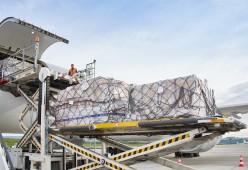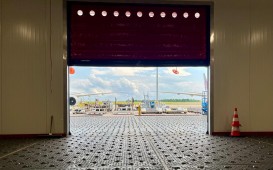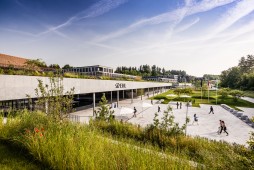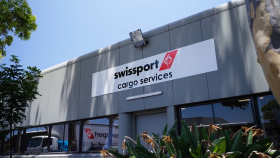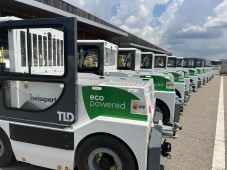WASTE MANAGEMENT AND CIRCULARITY
Swissport is committed to reducing waste across all areas of its business, focusing on reducing, reusing, and recycling materials such as plastic, wood, and hazardous waste. We also engage in innovative waste management practices, including a closed-loop plastic recycling system in several European warehouses and the use of recyclable pallets made from cardboard to improve resource efficiency.
Our Global Environmental Manual also categorizes the various waste streams at Swissport, including glass, paper, plastic, general waste, organic waste, cardboard, metal, and hazardous waste. Additional segregation is applied where required by local legislation. Sorting and disposal are carried out according to these waste streams.
Swissport has specific procedures for the management of hazardous waste, including the provision of appropriate containers, proper labeling, and appropriate temporary storage away from water sources and municipal sewers until disposal. For fleet assets that have reached the end of their economic life, we ensure that they are disposed of in the most environmentally sound manner, either by sale or scrapping to prevent soil contamination.
Typically, waste management is provided by the airport. If no such service is available, we enter into maintenance contracts with local waste management companies to dispose of the waste.
waste management
OUR APPROACH AND MEASURES
Our Global Environmental Manual outlines our approach to waste management with a simple strategy:
- Reduce the waste we generate
- Reuse materials and items until they can no longer be used
- Recycle waste only after reduction and reuse options have been exhausted
local sourcing and waste reduction
SUSTAINABILITY IN OUR LOUNGES
Swissport's Aspire lounges prioritize sustainability in both construction and operations. Recent lounges in Toronto and Amsterdam were built with sustainable practices, including LEED certification and the use of upcycled furniture. By 2025, Aspire lounges aim to eliminate single-use plastic tableware, replacing it with recyclable or reusable alternatives, and implementing energy-efficient systems like LED lighting and motion-controlled devices. Additionally, they focus on local sourcing and waste reduction, with 90% of their lounges already free of single-use plastic by 2023.


